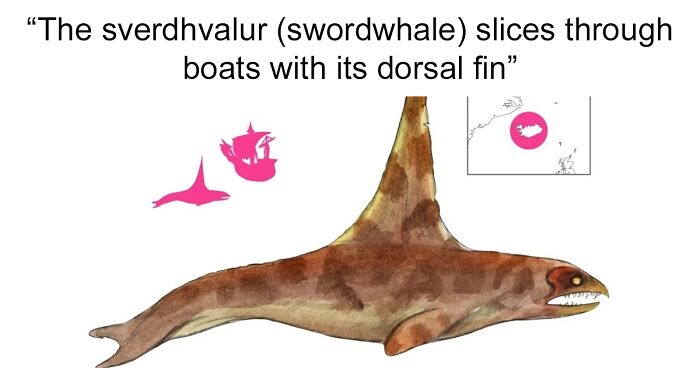
10 Mythical Whales Icelandic Folklore Wants You To Avoid Calling By Their Name
Recently, linguist Mx. Leah Velleman tweeted an interesting fact. They said one theory suggests Europeans started saying “brown one” or “honey-eater” instead of “bear” to avoid summoning them.
Turns out, Icelanders also believed this. The nation’s folklore wants people to avoid saying the names of the evil whales that lurk in the waters around their land. Otherwise, the beasts might rise to the surface and unleash havoc. Good thing they’re impossible to pronounce then. At least, to us outsiders.
Tumblr user a-book-of-creatures described the myth in a now-viral response to Mx. Leah Velleman and their initial tweet, and even included a few pictures of the creatures too.
Image credits: cthulhu-with-a-fez
Tumblr account a-book-of-creatures (ABC) is actually a part of a bigger project by the same name. Its creator told Bored Panda they’ve wanted to write an encyclopedia of legendary creatures since about 9th grade, but officially started the blog in 2015. “Part of what I want to do with ABC is to go back to primary sources as much as possible, and make it clear what my references are,” they said. “There’s been a lot of poor scholarship about mythical creatures and I hope to fix that. I also wanted to give attention to as many different cultures’ creatures as possible. So I would like to be able to say that my [blog] is the best-researched you’d find anywhere!”
Image credits: cthulhu-with-a-fez
The person themself isn’t Icelandic. But they’ve learned plenty about the wonderful evil whales of Iceland mainly by doing research. “At the time I started, I was blessed to be in a college setting with a huge library and Inter-Library Loan at my disposal. I started doing research on Iceland because I wanted to write up some Icelandic creatures, and I ended up finding way more than I expected. I strongly recommend Meeting With Monsters by Hlidberg and Aegisson, that was the gateway book that got me into Icelandic folklore (the kind that is largely forgotten even in Iceland).”
“From there, I just followed the trails into different sources, all of which are listed in their respective entries. But seriously, just get Meeting With Monsters [if you want to learn more about the country’s folklore], it’s very well researched and sourced (with a caveat, the authors make stuff up in the art and captions),” the creator of A Book Of Creatures explained, adding that getting a copy nowadays can be challenging—they got theirs off an Icelandic online store that has since gone defunct.
Image credits: cthulhu-with-a-fez
Image credits: cthulhu-with-a-fez
Image credits: cthulhu-with-a-fez
The mythical creatures enthusiast said the answer to the question why Icelanders have such intricate stories about whales is intuitive if you know the basic information on the country. “Iceland is an island, it’s highly dependent on fishing and maritime commerce, so it would make sense that an intricate mythology around whales (especially the kind that’s like ‘this whale is good to eat, this whale is not’) would develop. At least one whale (the lyngbakur) is an island-fish, the kind of myth that’s found worldwide. Icelandic folklore is terrified of fox-cat hybrids too, now that is
harder to explain.”
Image credits: cthulhu-with-a-fez
Image credits: cthulhu-with-a-fez
Image credits: cthulhu-with-a-fez
Since the dawn of history, Icelanders have told fantastic tales of their strange encounters with even stranger supernatural beings who they share the land with. Take elves (commonly referred to as Huldufólk (hidden people)) for example. They live in enchanted rocks and cliffs where they lead lives that are very similar to those led by humans; they keep livestock, cut hay, row fishing boats, pick berries, and go to church on Sundays. Iceland also has trolls. These creatures are often described as big, stupid, and greedy—but sometimes, kind and wise. Apparently, trolls of day and night occupy a huge portion of Icelandic folklore. Like elves, they become enraged when one does them harm, but one can expect to be richly rewarded when helping a troll in need.
The country has many, many more interesting creatures living within (its past). And the stories are just as beautiful and otherworldly as the island itself.
Image credits: cthulhu-with-a-fez
Image credits: cthulhu-with-a-fez
Image credits: cthulhu-with-a-fez
Image credits: cthulhu-with-a-fez
Image credits: cthulhu-with-a-fez
People thought the story was really interesting and were happy to learn something new
Image credits: cthulhu-with-a-fez
22Kviews
Share on FacebookThe title is misleading. The guy who's behind "A book of creatures" doesn't come from Iceland, he's Lebanese. (I really like his work, by the way, his art style is gorgeous and he does tons of research about every creature he draws).
Well, I think there is no danger of me accidentally saying any of those words. Or purposely.
It was an accident! I didn't mean to do it on porpoise!
Load More Replies...What do you mean, original name of bears? Do you mean ar- *being mauled to death by arth sound*
I don't know what I love more, that the combination of two of the nicest animals, horses and whales, results in one of the most evil, or that it is repelled by angelica.
I don’t like Icelandic people. 30 years ago I had an Icelandic roommate, Oli. He was tall, fit, funny, handsome and charming. A licensed pilot who fenced and spoke four languages. Then he invites over a half dozen Icelandic friends for a party—all tall and gorgeous. Me and my other nerd roommate just sat in his room watching movies and feeling ugly. And the worst part? Oli was the nicest guy!
So basically don't name them, don't eat them, don't make them angry and don't go to Iceland X3
This totally explains Fishlegs in "How to Train Your Dragon"...
Fascinating! I love learning new things about the stories us humans create and pass down through generations to explain things unknown. Thanks for sharing.
I kinda want to ask if Iceland is having a great laugh at our expense. "Evil whales! HAHAHAHA! Silly off-islanders!" But why not whales? Ahab had Moby D**k, why not?
The title is misleading. The guy who's behind "A book of creatures" doesn't come from Iceland, he's Lebanese. (I really like his work, by the way, his art style is gorgeous and he does tons of research about every creature he draws).
Well, I think there is no danger of me accidentally saying any of those words. Or purposely.
It was an accident! I didn't mean to do it on porpoise!
Load More Replies...What do you mean, original name of bears? Do you mean ar- *being mauled to death by arth sound*
I don't know what I love more, that the combination of two of the nicest animals, horses and whales, results in one of the most evil, or that it is repelled by angelica.
I don’t like Icelandic people. 30 years ago I had an Icelandic roommate, Oli. He was tall, fit, funny, handsome and charming. A licensed pilot who fenced and spoke four languages. Then he invites over a half dozen Icelandic friends for a party—all tall and gorgeous. Me and my other nerd roommate just sat in his room watching movies and feeling ugly. And the worst part? Oli was the nicest guy!
So basically don't name them, don't eat them, don't make them angry and don't go to Iceland X3
This totally explains Fishlegs in "How to Train Your Dragon"...
Fascinating! I love learning new things about the stories us humans create and pass down through generations to explain things unknown. Thanks for sharing.
I kinda want to ask if Iceland is having a great laugh at our expense. "Evil whales! HAHAHAHA! Silly off-islanders!" But why not whales? Ahab had Moby D**k, why not?

 Dark Mode
Dark Mode 

 No fees, cancel anytime
No fees, cancel anytime 



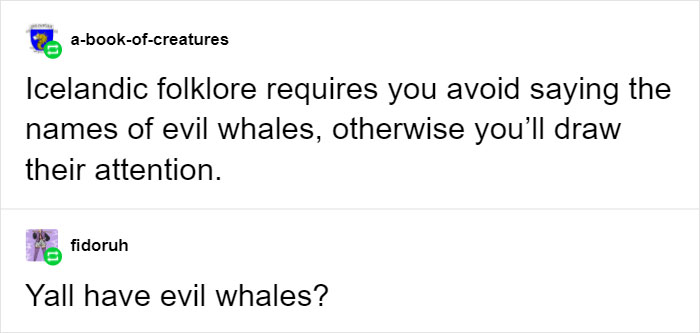
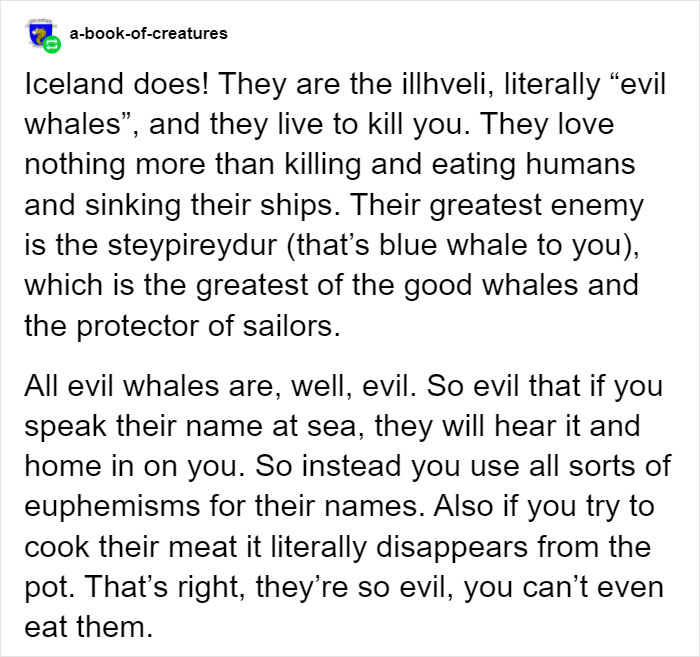
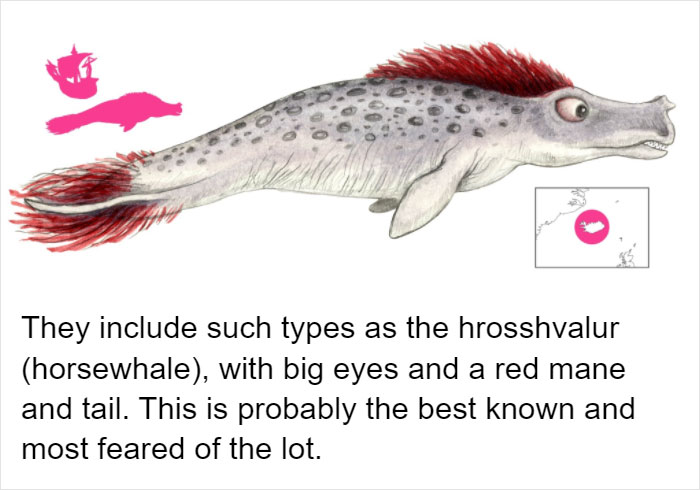
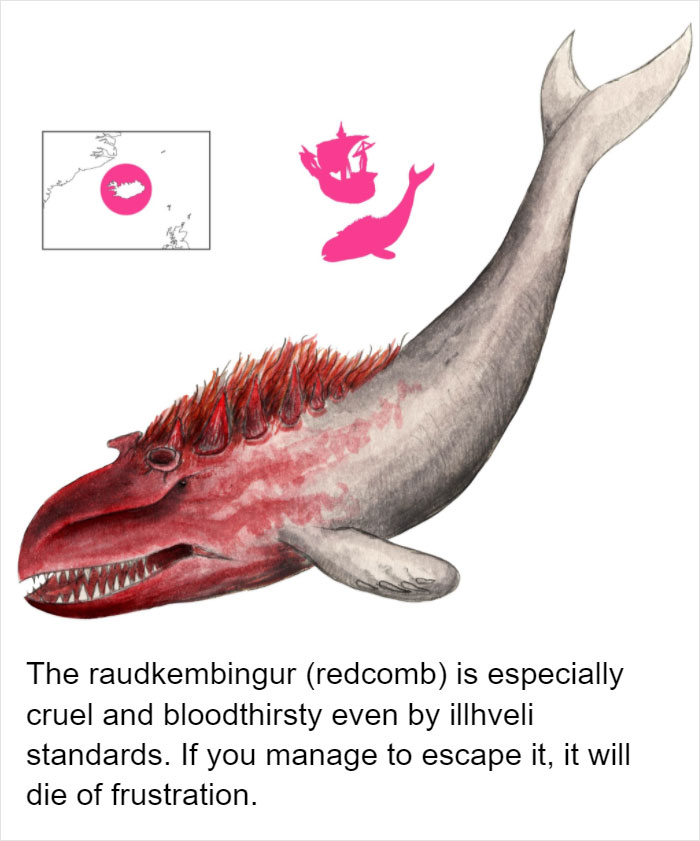
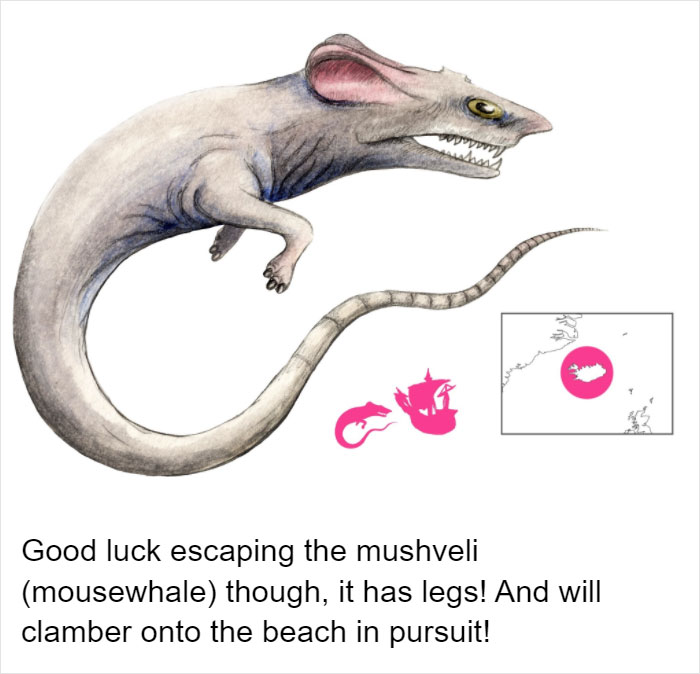
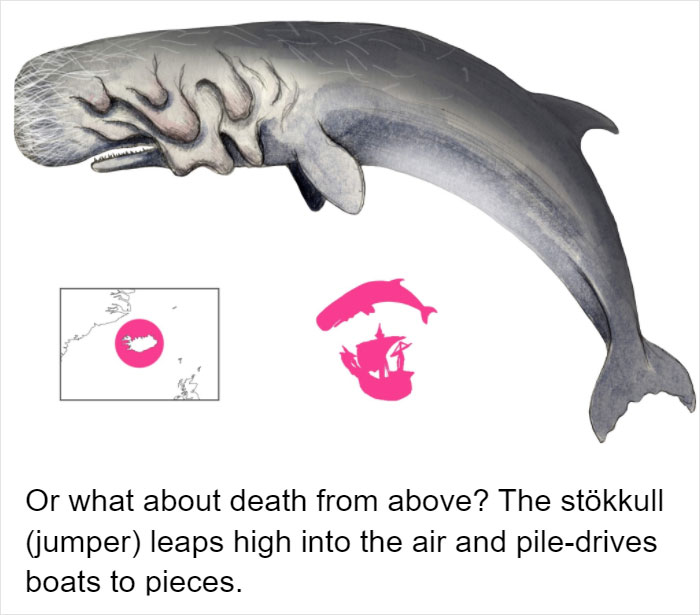

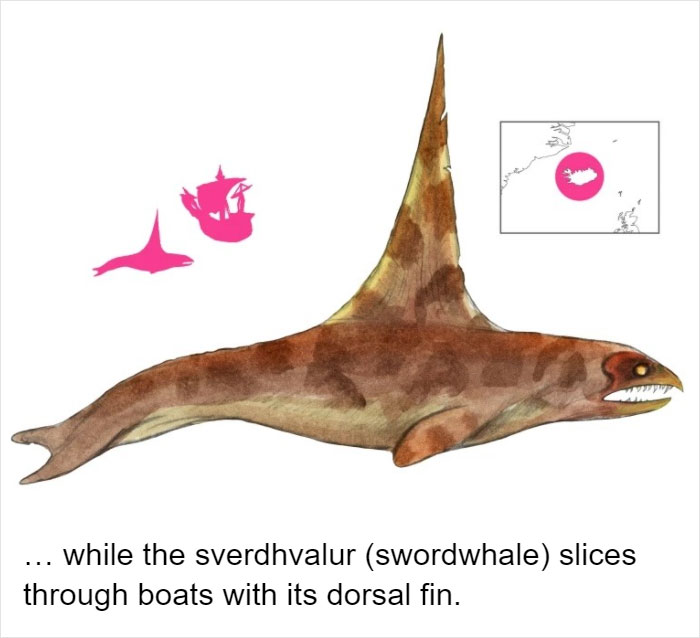
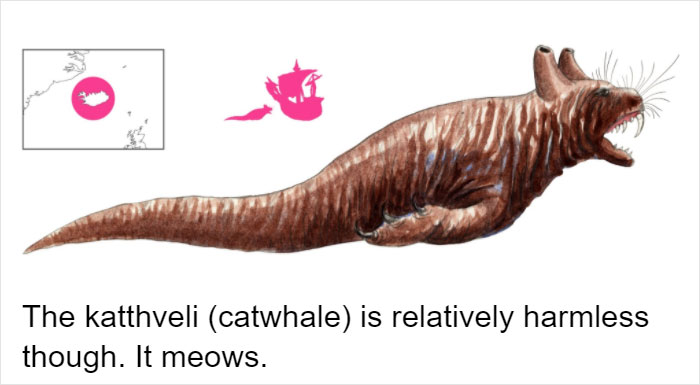
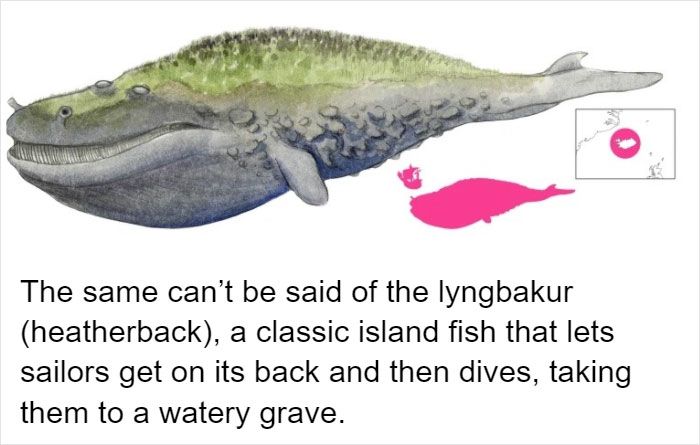
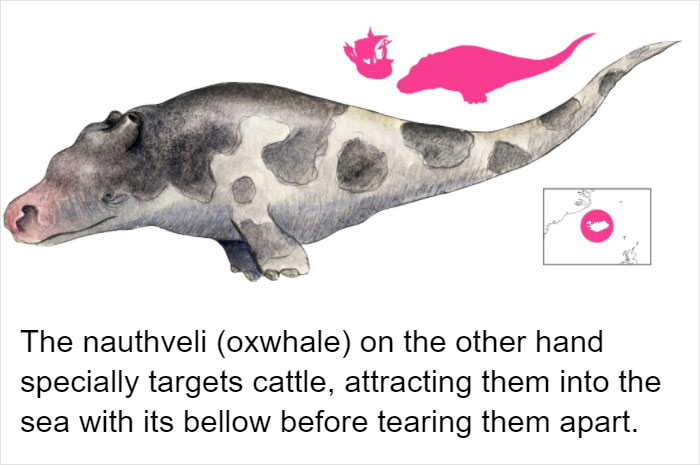
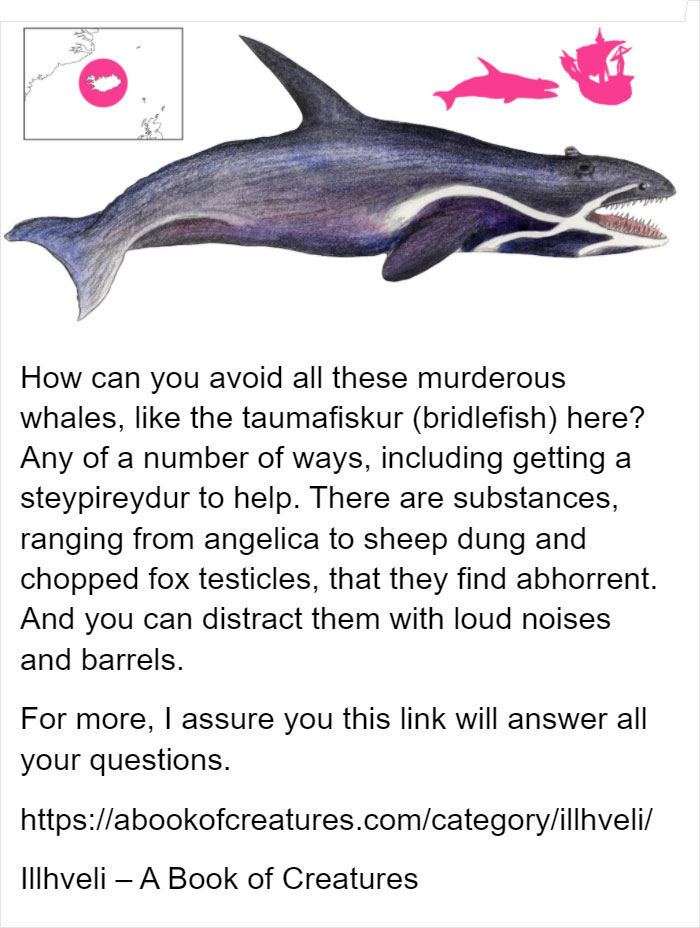
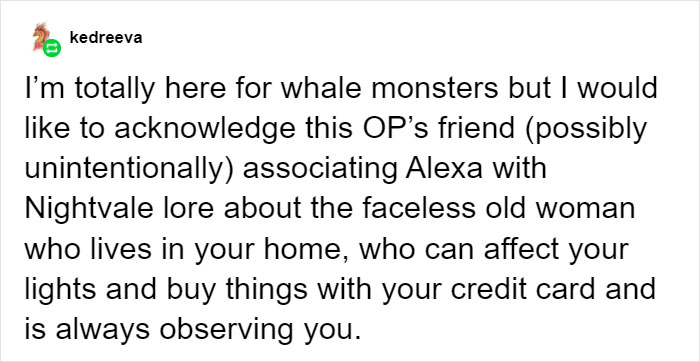



















































166
32